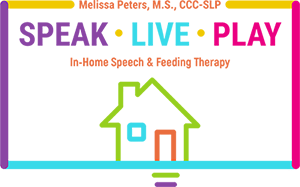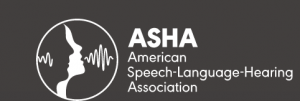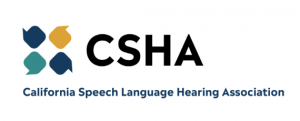Articulation Disorder: Key Things to Know
Speech problems – articulation and phonological disorders
Articulation and phonology are crucial aspects of speech. An articulation disorder occurs when a child struggles with forming speech sounds correctly. At the same time, a phonological disorder involves using sounds inaccurately in context. These disorders can hinder effective communication. Addressing these issues through therapy helps children improve their speech and overcome challenges.
As children grow, speech sounds develop in a predictable sequence. It’s normal for them to make errors while honing their language skills. But suppose a child’s articulation or phonological abilities hinder their clarity compared to peers. In that case, it’s worth seeking an assessment from a qualified speech therapist. They can evaluate speech sounds, communication style, and overall intelligibility.
 Signs and Symptoms Of Speech Disorders
Signs and Symptoms Of Speech Disorders
Articulation disorders
Articulation, in simple terms, is the process of creating sounds. It involves the synchronized movements of various parts like the lips, tongue, teeth, palate (the roof of your mouth), and the respiratory system, mainly the lungs. These parts work together to make the sounds we use for speech. Specifically, they help us form words and communicate effectively.
It is important to note that articulation is not only about making sounds but also about the intricate coordination of nerves and muscles involved in speech. Sometimes, individuals may face challenges in this area, leading to speech disorders such as articulation disorders. These disorders can impact the clarity and accuracy of speech.
To maintain and improve articulation, it is crucial to engage in activities that strengthen the relevant muscles and promote coordination. This may involve incorporating exercises and techniques specifically tailored to engage the speech production muscles. By incorporating these practices into your daily routine, you can improve your ability to express yourself clearly and effectively.
If your child is experiencing an articulation disorder, they may be facing challenges with pronouncing certain sounds correctly. For example, they may have a lisp, causing the “s” sound to be pronounced like “th.” Additionally, they may struggle with producing specific sounds, such as substituting “wabbit” for “rabbit” due to difficulty with the “r” sound. Supporting your child in addressing these speech challenges is crucial for their communication development.
 Phonological disorders
Phonological disorders
Phonology is the study of how sounds come together to make words. It’s like figuring out the building blocks of language. Imagine you’re solving a puzzle, but instead of using pieces, you’re using sounds to create words. This helps us understand how we talk and how some people may have trouble speaking, like with lactation, speech disorders, or articulation disorders. By studying phonology, we can better understand these challenges and find ways to help individuals who struggle with them.
Suppose your child has a speech disorder called a phonological disorder. In that case, they may make some mistakes when saying certain sounds in words. For example, they might use the wrong sound in a word or use a sound in the wrong position. Let’s say they use the “d” sound instead of the “g” sound, so they say “doe” instead of “go.” They might also leave out certain sounds in certain words. For instance, they can say “k” in “kite,” but they might leave it out in a word like “lie” instead of “like.” It’s important to know that this is something called a phonological disorder, which affects the way they make sounds. But don’t worry; with the right help and support, they can improve their speech and overcome these challenges.
Need help with sounds and sound rules in words? That’s called a phonemic awareness disorder. It’s connected to language and reading difficulties. So, getting the right treatment is super important for you. Understanding kids with this disorder can be tough, much harder than those with just articulation issues. See, kids with phonological disorders struggle with lots of sounds, not just one. So, let’s make sure you get the help you need!
 When To See A Doctor
When To See A Doctor
Suppose you, or anyone else who regularly interacts with your child, such as their teacher, have any worries regarding your child’s speech. In that case, it is advisable to consult with your GP or pediatrician to organize an evaluation with a speech therapist. Alternatively, you can directly schedule an appointment with a speech therapist, although please note that this may incur higher fees.
Treatment
Suppose you have any concerns regarding your child’s speech. In that case, it is recommended that a qualified speech therapist evaluate them. A speech therapist can identify the underlying cause and collaborate with you and your family to develop a tailored treatment plan. This may involve regular appointments and targeted exercises that can be practiced with your child at home. Rest assured, seeking professional guidance can greatly contribute to your child’s speech development.
Many children with articulation or phonological disorders can experience substantial improvement in their speech through effective speech therapy.
Brain Injuries
Articulation or phonological challenges are typically not directly linked to brain injury. Children and adults with an acquired brain injury may experience distinct speech pattern difficulties, which are often associated with dyspraxia or dysarthria. Additionally, some children and adults facing acquired brain injuries may encounter literacy and language challenges. Explore further insights on adults’ Dysarthria and Dyspraxia to enhance your understanding.
Key Points To Remember
Articulation and phonology are key aspects of speech sound production. Children experiencing phonological disorders or phonemic awareness challenges may face difficulties in language and literacy development. If you have concerns about your child’s speech, consult your GP to arrange an assessment with a qualified speech therapist. Effective speech therapy can lead to significant improvements in the speech of children with articulation or phonological disorders. Enhance your child’s speech development with appropriate intervention.
Speak Live Play Is Here To Help
Understanding articulation and phonological disorders is crucial for effective communication in children. If your child struggles with speech sound disorders, seek early intervention from expert therapists at Speak Live Play. With personalized treatment plans and targeted exercises, significant improvements can be achieved. Feel free to consult with a qualified speech therapist for a thorough evaluation and guidance in enhancing your child’s communication skills. Take the first step today with Speak Live Play.
[/vc_column_text][/vc_column][/vc_row]


 Signs and Symptoms Of Speech Disorders
Signs and Symptoms Of Speech Disorders Phonological disorders
Phonological disorders When To See A Doctor
When To See A Doctor

